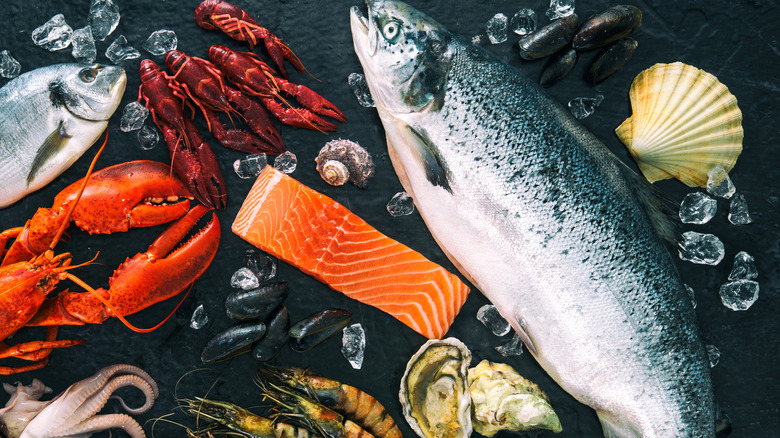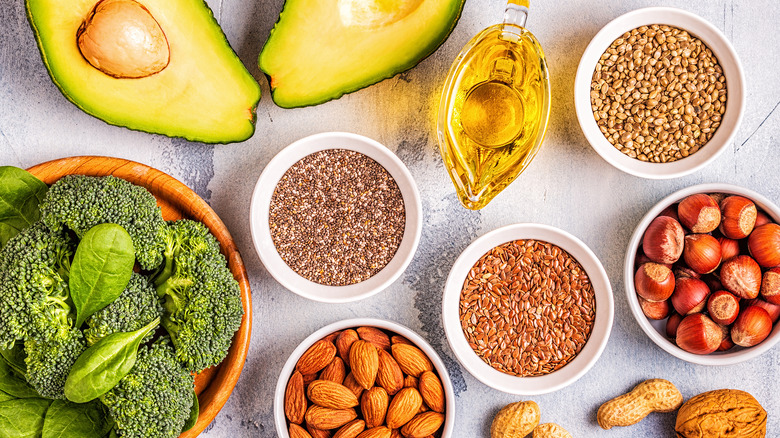Eat These Foods If You Want To Get More Omega-3
Omega-3 fatty acids, or Omega-3s, are often touted as the ultimate in healthy fats. There are plenty of Omega-3 supplements available on the market because the essential fat is critical for brain health and a happily functioning body, but you can get your Omega-3s from natural food sources, rather than out of a bottle.
We can't actually produce Omega-3 fatty acid on our own, which makes it critically important to eat enough foods that contain eicosapentaenoic acid (EPA), docosahexaenoic acid (DHA), and the plant-based form of Omega-3, alpha-linolenic (ALA) (via the Cleveland Clinic).
Having enough of these healthy fats improves heart health, may potentially protect against dementia and other losses in cognitive function, and even lowers inflammation in the body, hence its reputation as a healthy fat. There are no official recommendations of how much DHA or EPA a person should have in their diet, though the Food and Drug Administration does advise against eating more than three grams per day of the two combined, which is difficult to do without taking a supplement (via the National Institute of Health).
What are the top Omega-3 options to eat?
Fatty fish are the easiest and most accessible source of Omega-3 fatty acids, and eating fish twice a week will help you hit the amount of Omega-3s that you need. The top fishy sources for Omega-3s include Atlantic salmon with 1900 milligrams per serving, canned sardines with 1500 milligrams per serving, canned anchovies with 1200 milligrams per serving, and Atlantic mackerel with 1150 milligrams per serving. Because fish are the best source for EPA and DHA Omega-3s, fish oil is often the main ingredient in Omega-3 supplements (via Harvard Health).
But there are plenty of non-fish sources if you're a vegetarian or just don't love seafood. Eggs, milk, and yogurt can all be found fortified with Omega-3s. Nuts and seeds — flaxseed, walnuts, and chia seeds in particular — are also good sources for Omega-3s, particularly the plant-based alpha-linolenic acid (ALA). And if you're a regular salad eater or a vegan who loves to cook, drizzling flaxseed or walnut oil onto salads and stir fries is a great way to get Omega-3s in your diet without any added work (via WebMD).
You can even make a dessert or breakfast bowl into an Omega-3-packed dish by adding a handful of hemp hearts, chia seeds, and/or walnuts on top of a bowl of yogurt and berries (via Eat This, Not That).


